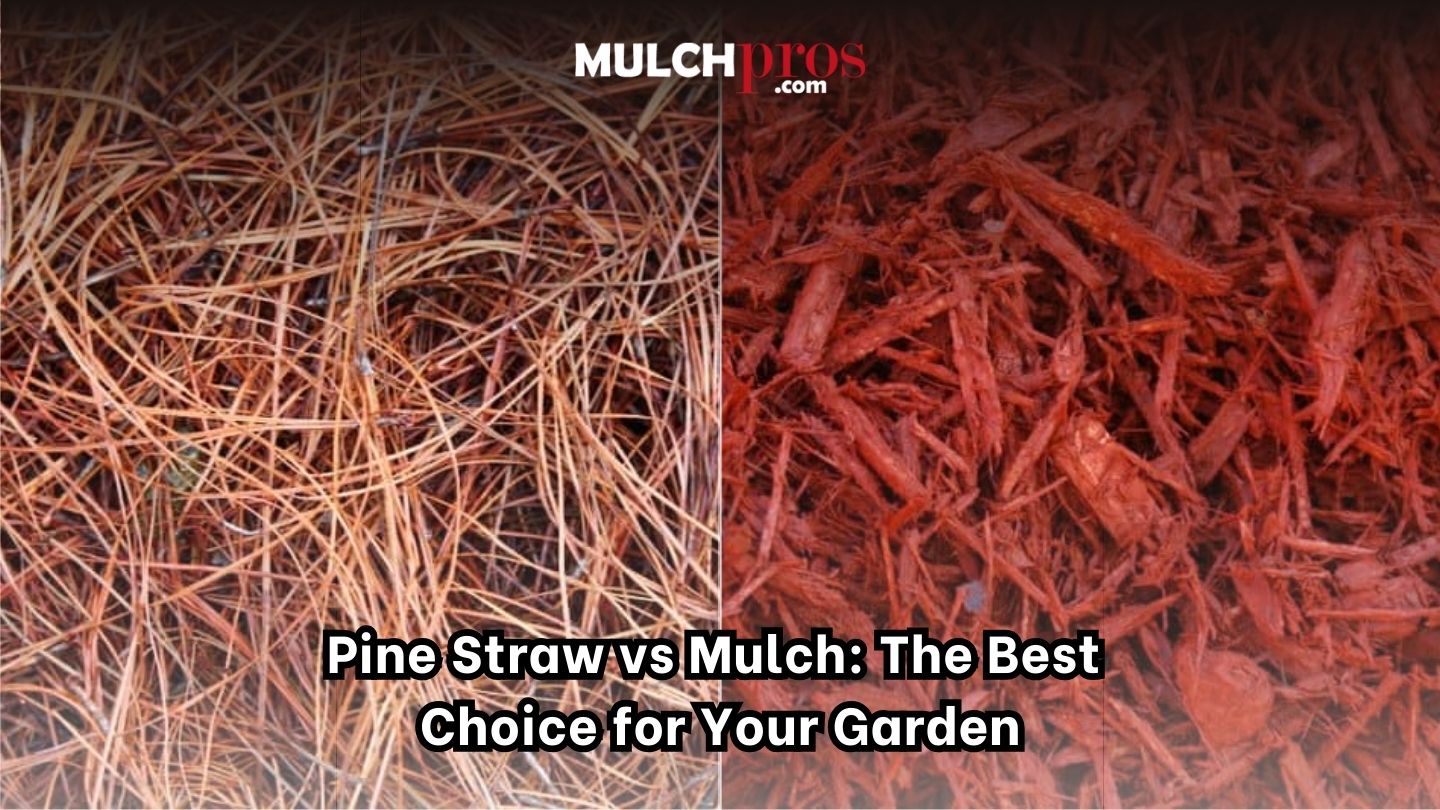Pine straw vs mulch: which is the better choice for your garden? Both materials help retain moisture and control weeds, but they differ in cost, application, and benefits. This blog will guide you through these differences to help you decide what’s best for your landscape.
Key Takeaways
- Pine straw is a cost-effective, lightweight mulching option that aids in moisture retention and weed control, making it ideal for low-maintenance gardening.
- Mulch, available in various materials, offers enhanced moisture retention and soil enrichment, making it suitable for nutrient-hungry plants and visually appealing landscapes.
- Key factors like climate, plant types, and maintenance requirements should guide the choice between pine straw and mulch for optimal gardening outcomes.
What is Pine Straw?
Pine straw is an organic material derived from the fallen needles of pine trees, frequently utilized in landscaping and gardening. It comes in two primary forms: long-needle and short-needle pine straw. Both types serve similar purposes, but long-needle pine straw is often preferred for its ease of collection and durability.
Pine straw is valued for its ability to retain moisture, regulate soil temperature, and suppress weed growth. This natural mulching material is not only cost-effective but also contributes to a rustic and aesthetically pleasing garden appearance. Additionally, pine straw maintains soil pH neutrality, making it a versatile choice for various types of vegetation. Its lightweight and manageable nature makes it easy to apply, even in gardens with unconventional shapes.
Benefits of Using Pine Straw
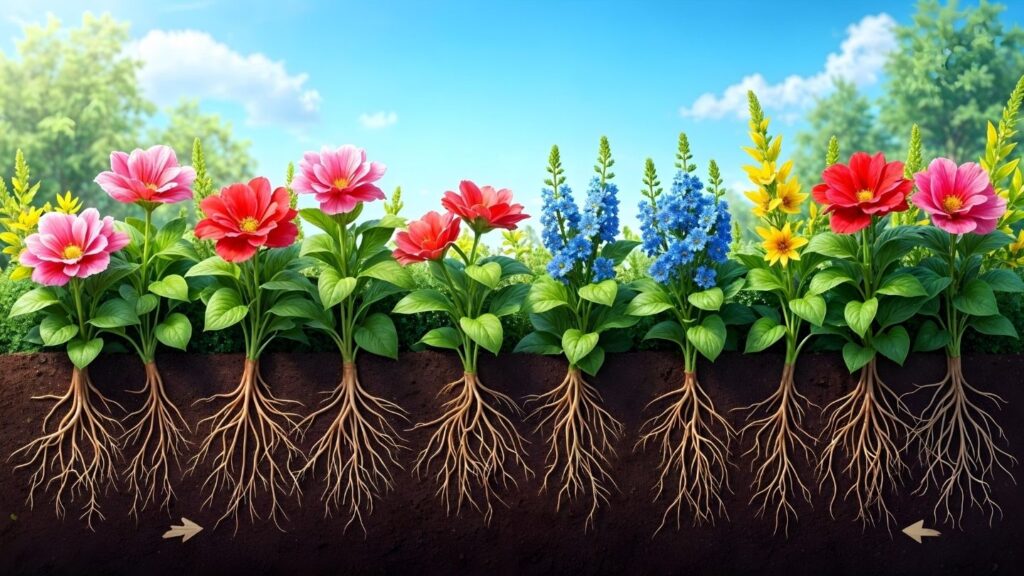
As a mulching material, pine straw provides numerous advantages for garden enthusiasts. It is effective in suppressing weed growth and acts as an insulator for the soil, thereby supporting plant vitality through moisture retention and maintaining consistent soil temperature. It serves as a deterrent to pests such as slugs and snails while not attracting unwanted insects, enhancing its desirability for use in gardens.
Cost-Effectiveness
Pine straw stands out as an economical option, primarily due to its lower price point compared to alternatives like shredded mulch. This affordability renders it a superior selection for expansive landscaping endeavors where financial limitations must be considered.
The extensive area that each bale of pine straw can cover Underscores its cost efficiency With other types of mulch. The need for fewer bales to encompass a specific region translates into decreased expenses and highlights pine straw as an appealing solution for comprehensive landscaping requirements.
Easy Application
Pine straw installation services offer a convenient option for gardeners looking for low-maintenance landscaping solutions due to the lightweight and manageable characteristics of pine straw. Its ease of handling makes it simple to apply, even in landscapes with unconventional shapes, while its slender and light composition facilitates quick spreading across extensive areas.
Soil Insulation and Moisture Retention
Pine straw’s tiered composition plays a key role in preserving the moisture levels of soil, acting as a shield that traps moisture and helps stabilize soil temperature. The buffering provided by this natural material is essential for nurturing a thriving garden ecosystem, especially when facing harsh weather situations.
By mitigating soil erosion and offering secure support to plant roots, pine straw sets up an ideal habitat conducive to the growth of diverse flora. It adeptly holds onto water yet permits air and water circulation within the earth, satisfying a wide array of landscaping requirements.
What is Mulch?
Mulch is a material spread over the surface of the soil to improve plant health and aesthetics. It can be organic or inorganic and includes materials like bark, wood chips, straw, leaves, or even rubber. Mulch serves multiple purposes: it retains soil moisture, suppresses weeds, regulates soil temperature, and enriches the soil as it decomposes.
Organic mulches, such as bark or compost, break down over time, adding nutrients to the soil and improving its structure. Inorganic mulches, like rubber or stone, do not decompose but are excellent for long-term weed control and moisture retention. The diverse textures and colors of mulch can also enhance the visual appeal of any garden or landscape.
Mulch is a versatile and essential component in gardening and landscaping, offering both functional and aesthetic benefits. Whether you’re looking to enrich the soil, conserve water, or simply beautify your garden, mulch is an invaluable resource.
Read more: How Long Does Bark Mulch Last? A Practical Guide
Benefits of Using Mulch
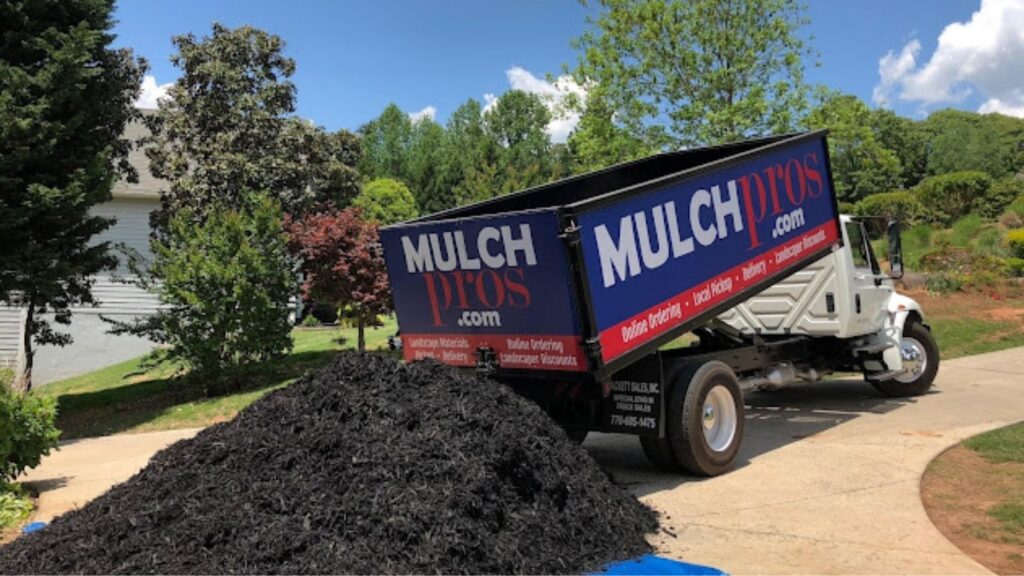
Mulch is favored by many gardeners due to the array of advantages it provides. It chiefly serves to retain soil moisture, inhibit the proliferation of weeds, and keep soil temperatures at a lower level, all vital for the well-being of plant roots.
Mulch is available in a variety of colors, like black, brown, red, and in textures that can greatly enhance the aesthetic quality of any garden.
Weed Control
The remarkable ability of mulch to control weeds is one of its most prominent advantages. Serving as an organic barrier against weed proliferation, it impedes the germination process of weed seeds, ensuring they don’t infringe on your plants’ essential resources such as nutrients and water. This contributes not only to a thriving garden but also diminishes the effort required for weeding.
Pine straw plays a role in curtailing weed expansion. Heavier substances like wood chips that are incorporated into mulch tend to surpass their capacity for stifling unwanted vegetation. Consequently, when superior weed suppression stands out as critical within garden beds or other spaces, opting for mulch proves more beneficial.
Moisture Retention
Mulch is superior in creating a moisture barrier and retaining soil wetness, outperforming lighter options such as pine straw mulch. Maintaining steady levels of soil moisture ensures that plants get the necessary hydration to flourish, regardless of conditions like intense rainfall or prolonged dry spells.
Soil Enrichment
The breakdown of organic mulch not only enriches the soil with essential nutrients that foster plant development but also enhances both its structure and fertility. This quality renders it particularly suitable for plants that have a high demand for nutrients.
Plants like azaleas and blueberries gain an advantage from pine straw’s capacity to hold moisture, whereas different species may benefit more from the nutrient-boosting characteristics of various forms of organic mulches. It is vital to select an appropriate mulching material tailored to fulfill the unique requirements your plants might have.
Comparing Pine Straw and Mulch
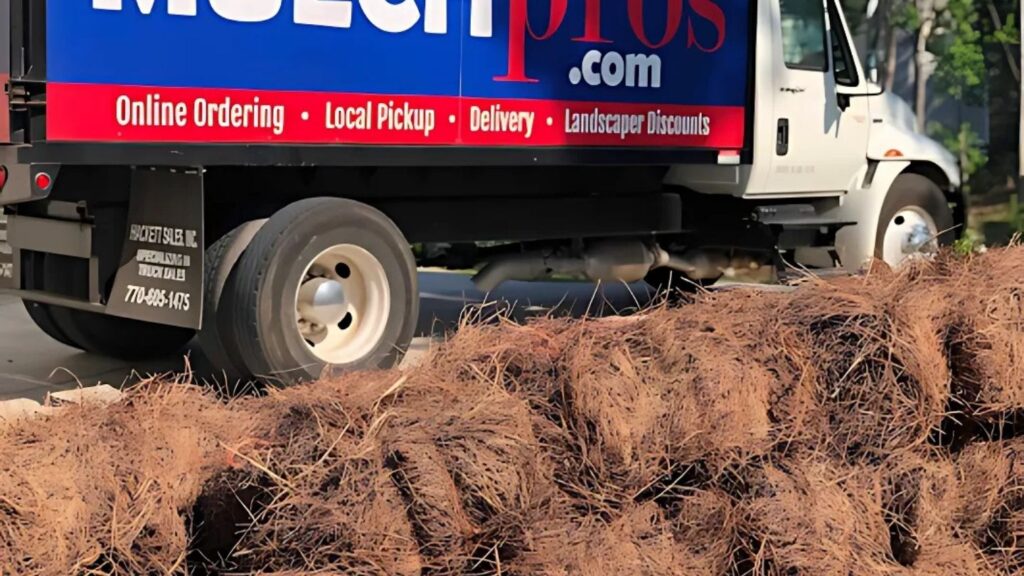
Several critical elements should be evaluated when examining the differences between pine straw and mulch, such as their durability, upkeep necessities, and effects on the environment. Both have their distinct advantages and disadvantages that must be taken into account before making a choice.
Read more: The Perfect Match: Pine Straw and Mulch
Longevity
Gardeners looking for a durable mulching solution might find that high-quality longleaf pine straws can remain effective for up to one year before they require replacement. On the other hand, different varieties of mulch, like shredded wood, could provide even more extended longevity and thus require less frequent topping-up.
Maintenance Requirements
Renowned for its ease of upkeep, pine straw merely necessitates sporadic rejuvenation to preserve its functionality. The minimal care involved is a significant advantage for those pursuing effortless gardening options and stands out as one of the key benefits of using pine straw.
On the other hand, various mulch variants could require more regular replenishment or attention, which can raise the level of effort required in garden maintenance. Evaluating these demands on your time and energy is essential when deciding between employing pine straw or mulch for any landscaping endeavor.
Environmental Impact
Harvesting pine straw typically involves very little machinery, resulting in a low carbon footprint. Such sustainable practices contribute to preserving soil health while maintaining the soil’s natural composition.
When gardeners evaluate sustainability in their practices, they consider the environmental consequences of using materials such as pine straw. Due to its negligible effect on altering soil composition and its low emission profile, pine straw is considered an eco-friendly choice for those aiming to reduce their gardening activities’ impact on the ecosystem.
Choosing the Right Option for Your Landscape
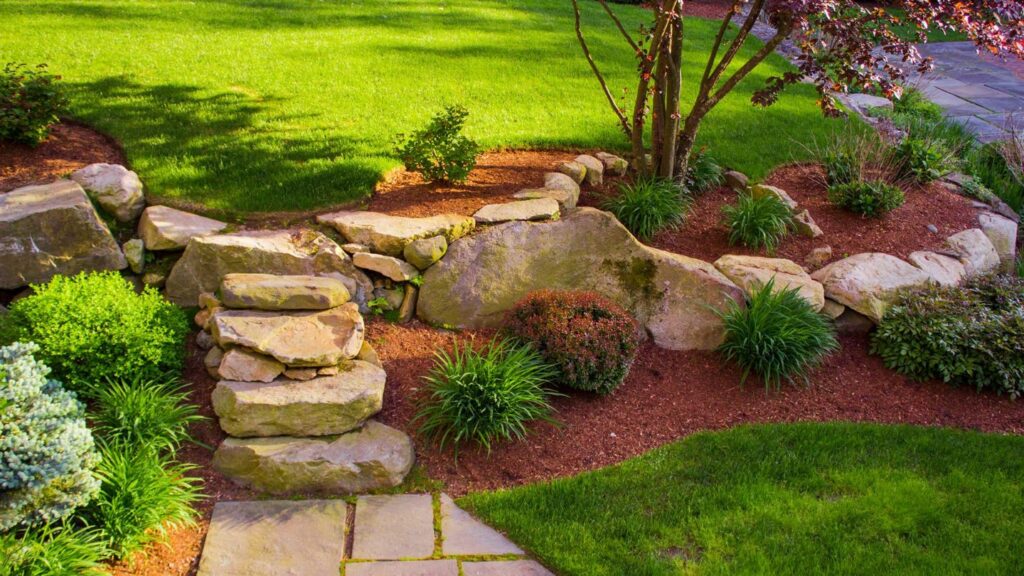
When considering pine straw versus mulch for your garden, numerous elements, such as the local climate, specific plant varieties, and individual taste, come into play. Comprehending these variables is essential to selecting the most appropriate option that aligns with the distinct requirements of your garden.
Climate Considerations
When choosing an appropriate mulching material for your garden, it’s important to take the local climate into account. Pine straw serves as an especially good option in regions that experience hot and humid summers along with gentle winters because it provides excellent soil insulation and helps maintain moisture levels.
Plant Types
Various plants demand specific conditions concerning their need for retaining moisture, access to nutrients, and controlling weed growth. Pine straw is an excellent mulch choice for such vegetation due to its proficiency in preserving soil moisture and maintaining a stable soil temperature, catering especially well to those species that thrive under steady hydration.
For flora with a greater appetite for nutrients, the nutrient-dense properties of organic mulch could be more advantageous.
Summary
To sum up, mulch and pine straw both provide distinct advantages that can improve your garden’s well-being and appearance. Taking into account their varying attributes related to expenses, upkeep, and ecological effects allows for a knowledgeable choice tailored to meet your particular landscaping requirements. Keep in mind that the optimal selection will be contingent upon the unique characteristics of your garden as well as what you personally prefer.
At Mulch Pros Landscape Supply, we offer a wide range of high-quality mulching solutions, including pine straw in Alpharetta. Our team is dedicated to helping you choose the best materials for your landscaping needs. Whether you’re looking for cost-effective pine straw or nutrient-rich mulch, we have you covered.
Frequently Asked Questions
How does pine straw compare to mulch in terms of cost?
Pine straw is typically more cost-effective than mulch, as it provides substantial coverage per bale, making it ideal for large landscaping projects.
This can lead to significant savings in material costs.
Which is better for weed control, pine straw or mulch?
For effective weed control, mulch is better than pine straw due to its denser composition, which creates a stronger barrier against weeds.
Choose mulch to enhance your garden’s defense against unwanted growth.
How does pine straw affect soil moisture and temperature?
Pine straw effectively retains soil moisture and regulates temperature, providing a stable environment that benefits plant roots.


